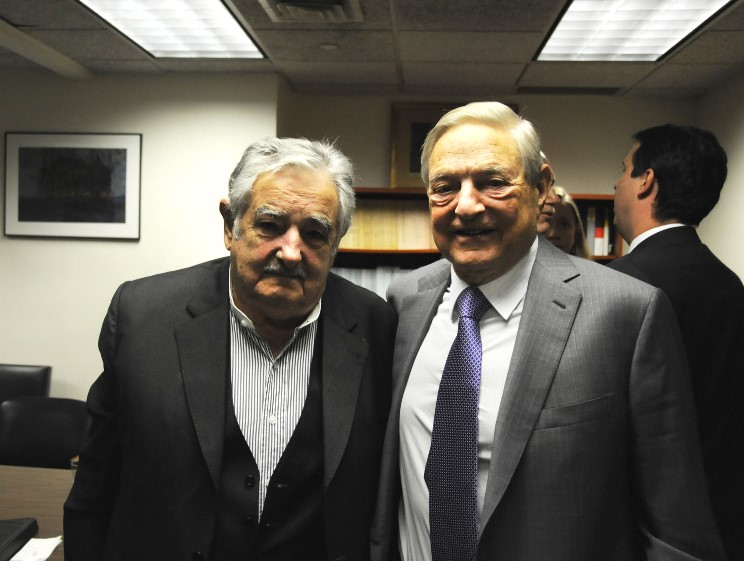EspañolThe global attention that surrounds President José Mujica’s proposal to “liberalize” the marijuana market is clear proof of how right Honoré de Balzac was when he stated that “life is a comedy.”
The particular case of Mujica and marijuana would make for a great a sitcom. It started with popular anger that arose after an unprecedented rise in crime, along with the government’s inability to remedy the situation. The mood of frustration reached a critical point, and citizens showed so both at the polls and on the streets.
In response to the situation that was harming his image as leader, Mujica — who makes statements on a daily basis to the Uruguayan media — told reporters the first thing that came to his mind in order to distract the attention of Uruguayans. This inadvertent thought is how the drama started towards the “liberalization” of marijuana.
His announcement was so unexpected that even legislators from his own party asked him to explain what the project was about, because he had never mentioned such an issue to them. Then the subject appearing in the international press was the most unexpected outcome of all.
The idea of legalizing marijuana market has received extensive coverage in international media — and both foreign commentators and foreign governments have weighed in on the subject. Meanwhile, Mujica continued to affirm his view in public statements, simultaneously feeling that he had gotten into trouble and flattered by the unexpected worldwide attention.
On every occasion, he said the first thing that came into his mind.
The draft law the executive sent to parliament expresses the intention to nationalize all activities related to marijuana. Indeed, Mujica wants the state to “take control of and regulate the activities of importation, production, acquisition in any capacity, storage, selling, and distribution of marijuana,” through a monopoly system.
Soon after, Mujica had an interview with Andres Oppenheimer of the Miami Herald about the kind of company that would lead the project of legalization — public or private? In direct response to the reporter’s question, Mujica said he had not decided yet whether the company would be private or public. But then in the same interview he said that it would be “a private company,” selling marijuana under strict government control.
The Uruguayan proposal to nationalize marijuana-related activities faced opposition from even Mujica’s allies. While the president won the title of “liberal” outside the borders, the fact was that his project frightened even his own legislators, although these legislators agreed with a few adjustments to the law.
The bill finally managed to pass in the House of Representatives, but there is no free market in it. The state will control the full process: licenses for producers, purchases, and distribution of marijuana in pharmacies. The government will even regulate the amount each individual can buy. In authorized places, consumers older than 18 years of age who have previously registered may purchase up to 30 joints (marijuana cigarettes) per month.

The only freedom Uruguayans are set to gain with the law is the opportunity to grow marijuana plants at home — up to six. In addition, Uruguayans may be able to create a “consumers club” for up to 45 members, in order to provide each other with marijuana.
A Dutch NGO nominated Mujica for the Nobel Peace Prize due to his policies concerning the control and sale of marijuana. In the meantime, 64 percent of Uruguay’s population opposed the initiative to legalize marijuana, including most of Mujica’s own supporters. In particular, his impromptu and unpredictable nature is the aspect most people do not like about his administration.
Recently, for example, Mujica stated during an interview with the AFP news agency that “this is an experiment. Like any experiment, it naturally has risks, and we have to understand that if we fail, we will need to go back. We do not have to become fanatics.”
The ex-Marxist soldier persuaded billionaire George Soros to finance an independent evaluation of the implementation of the law in Uruguay. The objective is to assess the laws specific impact on the nation’s health and violence. When accepting the proposal, Soros said Uruguay would be a “laboratory.”
As it happens in any sitcom, a president became famous all over the world just for telling the press the first thing that came to his mind, when he was in trouble in his country. He won the title of “freedom champion,” even though his clear and stated intention was to expand the power of state.
Many still believe his objective is to “liberalize” the market, but the bill he sent to parliament says he wants to nationalize the currently-illegal activity. Finally, the ex-Marxist soldier asks for support with the project from an American billionaire who earned his fortune through financial speculation.
Would Woody Allen be interested in this script?
Translated by Sofía Ramírez Fionda.
 Versión Español
Versión Español












